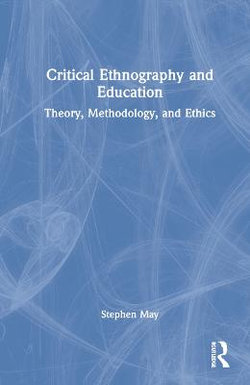In this book, Fitzpatrick and May make the case for a reimagined approach to critical ethnography in education. Working with an expansive understanding of critical, they argue that many researchers already do the kind of critical ethnography suggested in this book, whether they call their studies critical or not.
Drawing on a wide range of educational studies, the authors demonstrate that a methodology that is lived, embodied, and personal-and fundamentally connected to notions of power-is essential to exploring and understanding the many social and political issues facing education today. By grounding studies in work that reimagines, troubles, and questions notions of power, injustice, inequity, and marginalization, such studies engage with the tenets of critical ethnography.
Offering a wide-ranging and insightful commentary on the influences of critical ethnography over time, Fitzpatrick and May interrogate the ongoing theoretical developments, including poststructuralism, postcolonialism, and posthumanism. With extensive examples, excerpts, and personal discussions, the book thus repositions critical ethnography as an expansive, eclectic, and inclusive methodology that has a great deal to offer educational inquiries. Overviewing theoretical and methodological arguments, the book provides insight into issues of ethics and positionality as well as an in-depth focus on how ethnographic research illuminates such topics as racism, language, gender and sexuality in educational settings. It is essential reading for students, scholars, and researchers in qualitative inquiry, ethnography, educational anthropology, educational research methods, sociology of education, and philosophy of education.




Share This Book: